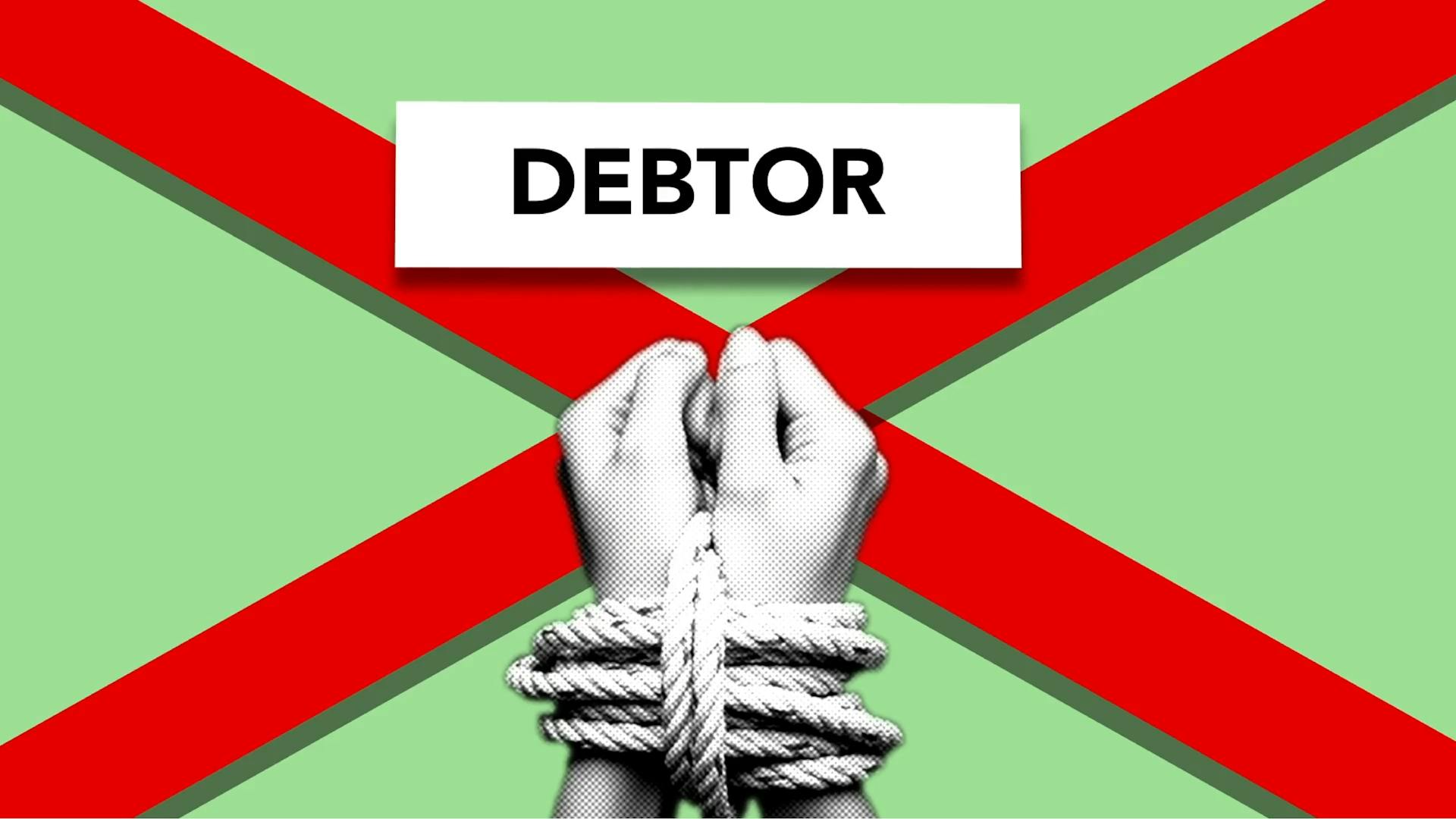
If a collections agency has a court judgment against you, they can garnish your wages to collect the debt. This is a serious situation that can affect your finances significantly.
In most states, a collections agency can garnish up to 25% of your disposable income. Disposable income is the amount of money you have left after taxes and other deductions.
To protect your finances, it's essential to understand the laws and regulations surrounding wage garnishment. This knowledge can help you make informed decisions and potentially prevent wage garnishment from happening in the first place.
What Happens to Your Wages
Wage garnishment is a serious consequence of unpaid debts, but it's essential to know what happens to your wages. Your employer is legally required to hand over part of your earnings to pay off your debts.
A creditor can garnish up to 25% of your wages if you earn $1,256.66 or more per month. This is a federal limit, but there are different limits for other types of debt, such as back child support or alimony, which can be up to 60% of your disposable wages.

Wage garnishment can happen even if you don't owe a court-ordered debt. For example, if you owe back taxes or a balance on federal student loans, a creditor can force garnishment without a court order.
If your employer receives a court order, they'll send you a notice, and the garnishment can begin on your next payday. You have the right to be notified of the garnishment, and you can dispute the notice if it has inaccurate information or you believe you don't owe the debt.
The maximum amount that can be garnished from your wages depends on how much you earn. Here's a breakdown of the federal limits:
Keep in mind that some forms of income, such as Social Security, are exempt from garnishment as income, but they could be subject to seizure once in your bank account.
Debt Repayment and Garnishment
You have the right to control which debts your payments apply to, so make sure to communicate clearly with your debt collector about how you want your payments to be allocated.

If a debt collector is trying to collect multiple debts from you, they must apply any payment you make to the debt you choose, and can't apply it to a debt you say you don't owe.
You can't be fired for having one single wage garnishment, but your employer may legally fire you if your wages are being garnished for more than one debt, even if the debts involve the same creditor.
Here are some key facts to keep in mind about wage garnishment:
Money Judgments
A money judgment is a court order that allows a creditor to garnish your wages. This typically happens when a creditor gets a court ruling in their favor against a debtor.
To garnish your wages, a creditor must first get a money judgment against you in court. The creditor will then give the court order to the sheriff, who will notify your employer.
Your employer will notify you of the wage garnishment, and you'll likely have a chance to object to it in a formal hearing. The court or your employer will let you know how to object.
For more insights, see: Judgment Collection

Filing for bankruptcy may sometimes stop wage garnishment, but you may still have to pay back the debt eventually. Under federal law, a creditor can't garnish more than 25 percent of your net earnings after mandatory deductions.
If your wages are being garnished for more than one debt, your employer can legally fire you, even if the debts involve the same creditor. Your state law may provide stronger protections than federal law in this area.
Student Loans
If you're struggling with student loan debt, you're not alone. You may lose up to 15 percent of your earnings to a wage garnishment if you default on a student loan.
The U.S. Department of Education or any entity assisting it can garnish your wages without getting a court order. This can be a stressful and overwhelming experience, but there is some good news.
You have a right to be informed about the amount that you owe and about how to obtain a hearing on the garnishment. This is a crucial step in understanding your situation and potentially resolving the issue.
You can also arrange a voluntary repayment plan with the Department of Education or other agency, which may help reduce the amount owed and prevent further garnishment.
Here are some key facts to keep in mind:
- You can lose up to 15 percent of your earnings to a wage garnishment if you default on a student loan.
- The U.S. Department of Education or any entity assisting it can garnish your wages without getting a court order.
- You have a right to be informed about the amount that you owe and about how to obtain a hearing on the garnishment.
- You can arrange a voluntary repayment plan with the Department of Education or other agency.
Debt Repayment
You have the power to control which debts your payments apply to. If a debt collector is trying to collect multiple debts from you, they must apply any payment you make to the debt you choose. You can even tell them which debt you don't owe, and they can't apply the payment to that one.
You can't be fired for having one single wage garnishment, but your employer may legally fire you if your wages are being garnished for more than one debt.
To avoid wage garnishment, consider paying off the debt or consolidating it with another loan if you can afford the payments. However, only do this if you're confident you can make the payments on the new loan, or you'll end up damaging your credit score further.
Broaden your view: What Can You Catch but Can T Throw?

You have the right to be informed about the amount you owe and how to obtain a hearing on the garnishment if you default on a student loan. The U.S. Department of Education or other agencies must also tell you how to arrange a voluntary repayment plan and get records related to the loan.
Here's a quick rundown of your rights in the wage garnishment process:
- You must be legally notified of the garnishment.
- You can file a dispute if the notice has inaccurate information or you believe you don't owe the debt.
- Some forms of income, such as Social Security, Supplemental Security Income, and veterans' benefits, are exempt from garnishment as income.
- You can't be fired for having one single wage garnishment.
Challenge the Judgment
You may have as few as five business days to contest a wage garnishment in court, so act quickly if you believe the garnishment was made in error. You can object to the garnishment in a formal hearing, and the court or your employer will inform you of the process.
If you receive a court order for wage garnishment, review it carefully to ensure it's accurate. You can challenge the garnishment if you believe the debt doesn't belong to you or the amount is incorrect.

In some cases, you may only have a handful of days to file a claim of exemption, so it's essential to act fast. You can also challenge the garnishment if you believe it's invalid.
Here are some possible reasons to challenge a wage garnishment:
- The debt doesn't belong to you.
- The amount of the debt is incorrect.
- The garnishment is invalid.
Filing for bankruptcy may sometimes stop wage garnishment, but the debt may need to be paid back eventually. Understand the laws regarding employee rights, as your employer may legally fire you if your wages are being garnished for more than one debt, even if the debts involve the same creditor.
File Exemption Claim
If you're facing a wage garnishment, you might be able to reduce or eliminate the impact by filing a claim of exemption.
You can claim that some or all of your income is exempt from garnishment, which could include income already being garnished by another order or certain types of income that are exempt in general.

For example, if your income is already being garnished by another order, it could reduce the impact of any new garnishments. Certain types of income may be exempt from garnishments in general, including alimony, child support, Social Security, retirement and disability income.
To file a claim of exemption, you'll need to provide information to show that garnishment would impact your ability to cover necessary expenses and provide for your dependents. You can also use this opportunity to dispute the garnishment if you believe it was made in error or is being improperly executed.
You may have as few as five business days to contest the ruling, so act quickly if you think you have a valid claim.
Here are some examples of income that may be exempt from garnishment:
- Alimony
- Child support
- Social Security
- Retirement income
- Disability income
Old Debts
Old Debts can be a real challenge to deal with, especially if they're many years old. In most states, there is a statute of limitations on old debts, typically ranging from 3 to 10 years.

The statute of limitations clock starts ticking on the date of the last payment or communication from the creditor. If the debt is older than the statute of limitations, the creditor may not be able to sue you for payment.
You can check your state's specific statute of limitations for old debts, but in general, debts over 7 years old are often considered uncollectible.
Financial Consequences
A wage garnishment judgment can stay on your credit reports for up to seven years, affecting your credit score.
This can be a significant financial burden, making it harder to get credit or loans in the future. Building a budget and sticking to it can help you stay on top of your finances to avoid another garnishment.
You can also take steps to bolster your credit, such as taking out a secured credit card to work on restoring your credit.
For more insights, see: How Long Can Collection Agencies Report to Credit Bureaus
Taxes
Taxes can be a significant financial burden, and the IRS has the power to garnish your wages if you owe back taxes. The IRS doesn't need a court order to do this.

Your employer will receive a wage levy notice from the IRS and give it to you, along with an exemption claim form that you'll need to complete. This form will help you understand the amount that will be taken from your paycheck.
The IRS will use a formula to determine the amount of wages to be garnished, taking into account the number of dependents you're supporting and your standard deduction. This means that the more dependents you have, the more money will be taken from your paycheck.
Some state tax agencies also have the power to garnish wages, but they may be subject to stricter limits on the percentage of wages they can take.
Financial Burden
If you're struggling with wage garnishment, it's essential to consult a nonprofit credit counselor to discuss your debt relief options, such as a repayment plan or bankruptcy.
A garnishment judgment can stay on your credit reports for up to seven years, significantly affecting your credit score.

Building a budget and sticking to it can help you stay on top of your finances to avoid another garnishment. It's not about depriving yourself of everything, but making conscious financial decisions.
Tailoring your budget to your needs is okay, and it's better than following generic advice that doesn't work for you. For instance, if you're a freelancer, your budget will look very different from someone with a 9-to-5 job.
Taking out a secured credit card can help you work on restoring your credit. It's not a magic solution, but it's a step in the right direction.
Increasing your income through a second job or a side hustle can also be beneficial. It's not always easy, but it's worth it in the long run.
For more insights, see: Can Debt Collection Agencies Call Your Work
Sources
- https://www.irs.gov/businesses/small-businesses-self-employed/private-debt-collection-faqs
- https://www.justia.com/debt-management/creditor-collection-methods/wage-garnishment/
- https://consumer.ftc.gov/articles/debt-collection-faqs
- https://www.experian.com/blogs/ask-experian/how-to-stop-garnishment/
- https://www.nerdwallet.com/article/finance/wage-garnishment
Featured Images: pexels.com


